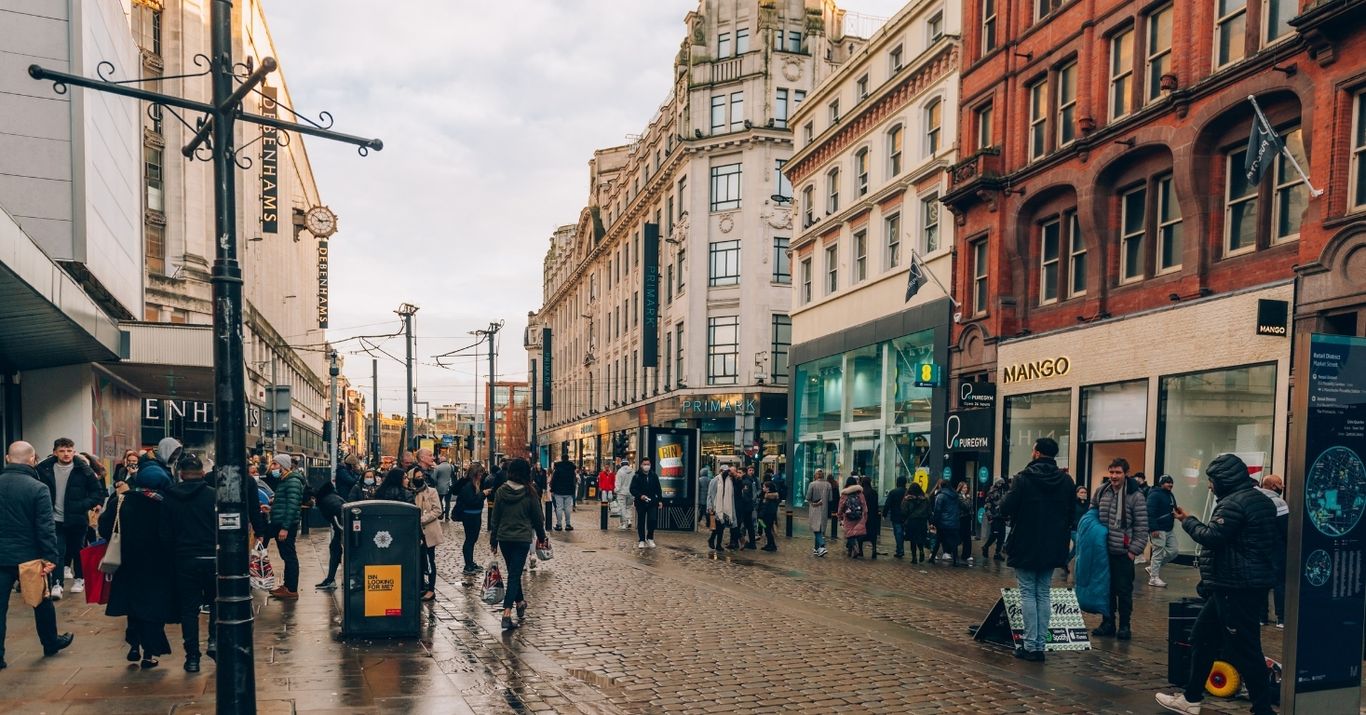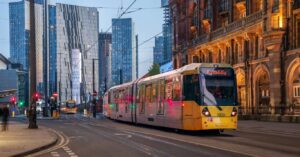
Discovering Manchester: The Ultimate Guide to Activities, Attractions, and Experiences
Manchester stands as one of the UK's most dynamic and diverse cities, offering visitors and residents alike an extraordinary range of experiences that reflect its rich industrial heritage, thriving cultural scene, and innovative spirit. From world-class museums and galleries to legendary music venues, historic architecture, and cutting-edge entertainment, Manchester rewards exploration at every turn. This comprehensive guide showcases the best activities and attractions that make Manchester an essential destination for anyone seeking to understand the heart of Northern England.
Historical Attractions: Exploring Manchester's Rich Past
Manchester's identity is inextricably linked to its industrial heritage, and numerous attractions offer fascinating insights into the city's history as the world's first industrial metropolis.
-
The Science and Industry Museum
Located on the site of the world's oldest surviving passenger railway station, the Science and Industry Museum chronicles Manchester's pivotal role in the Industrial Revolution. The museum's extensive collections include working steam engines, historic aircraft, and interactive exhibits that demonstrate Manchester's contributions to science, technology, and manufacturing. Visitors can explore the Revolution Manchester Gallery to understand how the city transformed from a small market town into an industrial powerhouse, forever changing global commerce and urban development.
-
Manchester Cathedral
Dating back to the medieval period, Manchester Cathedral stands as a testament to the city's pre-industrial history. Its Gothic architecture features intricate woodcarvings, stained glass windows, and a fascinating blend of ancient and modern elements resulting from reconstruction after World War II bombing damage. The cathedral offers guided tours that reveal its historical significance and architectural evolution, providing a peaceful counterpoint to Manchester's urban energy.
-
The People's History Museum
As the national museum of democracy, the People's History Museum offers a compelling exploration of the struggle for equality and workers' rights that defined much of Manchester's social history. Its collections include historic trade union banners, political artifacts, and interactive exhibits that trace the development of democratic movements in the UK. The museum's location in a restored Edwardian pump house adds another layer of historical interest to the visitor experience.
-
The John Rylands Library
Often described as a cathedral to books, the John Rylands Library represents one of the finest examples of neo-Gothic architecture in Europe. Founded by Enriqueta Rylands in memory of her husband, this extraordinary building houses one of the world's richest collections of rare books and manuscripts, including the oldest known fragment of the New Testament, medieval illuminated manuscripts, and early printed works. The library's atmospheric reading room, with its soaring vaulted ceiling and stained glass windows, offers visitors a glimpse into Victorian Manchester's cultural aspirations.

Cultural Experiences: Manchester's Artistic Landscape
Manchester's cultural vitality rivals that of many national capitals, with institutions and venues that showcase both established and emerging talents across multiple artistic disciplines.
-
The Manchester Art Gallery
Housing an impressive collection of fine art, decorative arts, and design, the Manchester Art Gallery offers visitors the opportunity to experience works spanning six centuries. Its pre-Raphaelite paintings are particularly renowned, including masterpieces by Rossetti, Millais, and Holman Hunt. The gallery also features contemporary art exhibitions, engaging community programs, and a collection of craft and design that reflects Manchester's industrial aesthetics and innovations.
-
HOME
As Manchester's center for international contemporary art, theater, and film, HOME represents the city's forward-looking cultural ambitions. Since opening in 2015, this multi-disciplinary arts center has established itself as a creative hub, offering cutting-edge exhibitions, independent cinema, and original theatrical productions. The venue's restaurants and public spaces encourage visitors to engage with Manchester's creative community in a relaxed and stimulating environment.
-
The Whitworth
Following a major renovation, the Whitworth has transformed from a traditional gallery into one of the UK's most innovative cultural institutions. Set in Whitworth Park, the gallery's striking glass extensions create a dialogue between its historic building and the surrounding landscape. The Whitworth's collections emphasize modern art, textiles, and wallpapers, reflecting Manchester's industrial heritage while presenting contemporary artistic responses to social and environmental challenges.
-
Band on the Wall
Named for its historic stage positioned high on the wall, this legendary music venue has played a crucial role in Manchester's musical evolution since the 1930s. After extensive renovation, Band on the Wall continues to showcase diverse musical talents, from jazz and folk to world music and electronic genres. The venue's intimate atmosphere and commitment to musical education make it essential to Manchester's cultural landscape and a living link to the city's rich musical heritage.
Manchester's Musical Legacy
Few cities worldwide can claim such a profound impact on popular music as Manchester, whose bands and venues have repeatedly redefined contemporary sound over the past several decades.
-
The Haçienda Apartments and Factory Records Sites
Though the legendary Haçienda nightclub closed in 1997, music enthusiasts can visit the apartment building that now stands on its site, complete with a commemorative plaque. Similarly, the former location of Factory Records' offices on Charles Street offers a pilgrimage point for fans of Joy Division, New Order, and Happy Mondays. These sites represent Manchester's pivotal role in the post-punk and "Madchester" eras that transformed British music in the 1980s and early 1990s.
-
Manchester Music Tour
Dedicated music tours offer comprehensive explorations of the city's musical geography, from the Lesser Free Trade Hall (where the Sex Pistols' 1976 performance inspired a generation of Manchester musicians) to Salford Lads Club (immortalized on The Smiths' "The Queen Is Dead" album cover). These tours provide context for understanding how Manchester's industrial decline, social dynamics, and architectural spaces influenced its distinctive musical output.
-
Current Music Venues
Manchester's contemporary music scene remains vibrant, with venues like the O2 Ritz, Albert Hall, and Academy hosting both established artists and emerging talents. For those seeking to experience the next generation of Manchester music, smaller venues such as Night & Day Café, The Castle Hotel, and Gullivers showcase local bands that continue the city's tradition of musical innovation.
Modern Manchester: Shopping and Urban Experiences
Beyond its historical and cultural attractions, Manchester offers exceptional retail experiences and urban amenities that reflect its status as the North's commercial capital.
-
Shopping Districts
Manchester's diverse shopping areas cater to all tastes and budgets. The architecturally striking Trafford Centre provides an extensive out-of-town retail experience, while the city center offers several distinctive shopping districts:
- Market Street houses major high street brands in a pedestrianized environment
- New Cathedral Street and Exchange Square focus on luxury retailers
- The Northern Quarter specializes in independent shops, vintage clothing, and vinyl record stores
- The Royal Exchange combines upscale shopping with a historic cotton exchange building that now hosts a theater-in-the-round
-
Manchester Arndale
As one of the UK's largest city-center shopping complexes, Manchester Arndale accommodates approximately 240 stores within its distinctive concrete structure. Recently modernized, the center includes major department stores, fashion retailers, and a vibrant food market that showcases local culinary talents.
-
Ancoats and New Islington
These regenerated areas northeast of the city center have transformed from industrial zones into some of Manchester's most desirable urban districts. Visitors can explore converted mill buildings, contemporary residential developments like Chips and Islington Wharf, and a growing collection of independent restaurants, bars, and coffee shops. The picturesque Ancoats Marina offers a peaceful waterside environment that contrasts with the area's industrial heritage.
-
MediaCityUK
This purpose-built development in Salford Quays houses BBC North, ITV, and numerous media production companies. The striking modern architecture, waterfront setting, and cultural venues like The Lowry make it worth visiting even for those unconnected to the media industries. Public tours of the BBC studios offer insights into broadcasting, while the surrounding area features restaurants, bars, and water sports facilities.
Natural Spaces and Outdoor Activities
Despite its urban character, Manchester offers numerous green spaces and outdoor recreational opportunities that provide refreshing contrast to the city environment.
-
Heaton Park
As one of Europe's largest municipal parks, Heaton Park encompasses 600 acres of landscaped gardens, woodland, and open spaces just a few miles from the city center. The park contains a boating lake, animal center, and the neoclassical Heaton Hall, a Grade I listed building. Throughout the year, Heaton Park hosts major outdoor events, including concerts and festivals that attract visitors from across the North.
-
Fletcher Moss Botanical Garden
Located in Didsbury, Fletcher Moss offers a tranquil environment featuring alpine gardens, woodland walks, and riverside paths. The garden's diverse plant collections thrive in a sheltered microclimate, creating unexpectedly lush landscapes. The adjacent Parsonage Gardens and Millgate Fields enhance the area's appeal for nature enthusiasts and those seeking respite from urban intensity.
-
The Manchester Ship Canal and Bridgewater Canal
These historic waterways offer opportunities for walking, cycling, and boat trips that connect Manchester's industrial past with its regenerated present. The towpaths alongside the canals provide pleasant routes through the city and into the surrounding countryside, offering unique perspectives on Manchester's evolution from manufacturing center to modern metropolis.
-
Peak District Proximity
Manchester's location provides easy access to the Peak District National Park, with its stunning landscapes, walking trails, and historic villages. Within an hour's travel from the city center, visitors can experience dramatic gritstone edges, limestone dales, and panoramic views that demonstrate why the Peak District became Britain's first national park in 1951.
Sporting Excellence: Manchester's Athletic Heritage
Manchester's global reputation owes much to its sporting achievements, particularly in football, where its two premier league clubs have achieved international renown.
-
National Football Museum
Located in the striking Urbis building, the National Football Museum houses the world's finest collection of football memorabilia and interactive exhibits that celebrate the sport's cultural significance. The museum explores football's development from its origins to contemporary global phenomenon, with particular emphasis on Manchester's contribution to the game's evolution.
-
Old Trafford and Etihad Stadium Tours
Both Manchester United and Manchester City offer behind-the-scenes stadium tours that provide access to areas normally reserved for players and officials. These tours include visiting the changing rooms, walking through the players' tunnel, and sitting in the manager's pitch-side seat. The clubs' respective museums showcase trophies, historic photographs, and artifacts that document their competitive histories.
-
Manchester Aquatics Centre
Built for the 2002 Commonwealth Games, this Olympic-standard swimming facility welcomes public swimmers alongside elite athletes. The center's 50-meter pool, diving pool, and fitness facilities offer visitors the chance to experience world-class sporting amenities while appreciating the architectural legacy of Manchester's Commonwealth Games.
Culinary Manchester: From Traditional to Cutting-Edge
Manchester's food scene has undergone a remarkable transformation in recent years, evolving from basic pub fare to a diverse culinary landscape that reflects both local traditions and international influences.
-
Chinatown
Manchester's compact Chinatown centers on Faulkner Street, where the ornate paifang (archway) marks the entrance to a vibrant district of East Asian restaurants, supermarkets, and bakeries. Beyond Chinese establishments, visitors can find Korean, Vietnamese, Thai, and Japanese eateries that contribute to the area's multicultural character. The Chinese New Year celebrations here rank among Manchester's most colorful annual events.
-
Curry Mile
Located in Rusholme, the Curry Mile features the largest concentration of South Asian restaurants outside the Indian subcontinent. Though the name suggests exclusively Indian cuisine, the area offers diverse culinary traditions from Pakistan, Bangladesh, Afghanistan, and the Middle East. Recent years have seen an influx of Middle Eastern shisha cafés that add to the district's vibrant nighttime atmosphere.
-
Food Halls and Markets
Modern food halls have transformed Manchester's dining landscape, offering varied cuisines in sociable environments. Mackie Mayor in the Northern Quarter occupies a restored Victorian market building, while Altrincham Market and Stockport's Produce Hall have revitalized their respective town centers. These venues showcase local producers and independent food businesses, reflecting contemporary interest in authentic, artisanal food experiences.
-
Fine Dining
Manchester's growing collection of high-end restaurants demonstrates the city's gastronomic ambitions. Establishments like Mana (Manchester's first Michelin-starred restaurant in over 40 years), The French at The Midland Hotel, and Restaurant MCR offer sophisticated dining experiences that utilize the Northwest's exceptional produce within creative, contemporary presentations.
Day Trips from Manchester: Exploring the Wider Region
Manchester's central location makes it an excellent base for discovering Northern England's diverse attractions, many accessible within an hour's journey from the city center.
-
Liverpool
Just 35 miles west of Manchester, Liverpool offers complementary cultural experiences, from the revitalized Albert Dock complex to The Beatles' significant sites. The city's UNESCO World Heritage waterfront, world-class museums, and distinctive architectural character make it an ideal day trip destination that allows visitors to compare the Northwest's two major urban centers.
-
Chester
This historic city surrounds visitors with nearly 2,000 years of history, from its Roman amphitheater to its medieval walls and distinctive black-and-white timber architecture. Chester's covered walkways, known as the Rows, create a unique shopping environment found nowhere else in the world, while the city's Roman gardens and riverside setting offer picturesque views throughout the seasons.
-
Hebden Bridge
Located in West Yorkshire's Calder Valley, this former mill town has transformed into a creative haven known for its independent shops, artistic community, and beautiful Pennine setting. Hebden Bridge's alternative atmosphere, canal-side amenities, and picturesque location make it popular with visitors seeking authentic experiences beyond typical tourist destinations.
-
Buxton
This elegant spa town in the Peak District offers impressive Georgian and Victorian architecture surrounding its historic thermal springs. The recently restored Buxton Crescent and Thermal Spa connects visitors to the town's heritage as a wellness destination, while attractions like Poole's Cavern showcase the area's extraordinary limestone geology. The annual Buxton International Festival brings world-class opera and literature events to this sophisticated small town.
Practical Information for Visitors
-
Getting Around Manchester
Manchester's comprehensive public transportation network makes exploring the city straightforward and affordable. The Metrolink tram system connects major attractions and districts, while free bus services operate within the city center. For those staying longer, the System One travelcard allows unlimited travel across Greater Manchester's buses, trams, and trains. Walking remains an excellent option for experiencing central Manchester, with most attractions located within a compact and pedestrian-friendly area.
-
Accommodation Options
Visitors to Manchester benefit from diverse accommodation options, from luxury establishments like The Lowry Hotel and Hotel Gotham to boutique properties including The King Street Townhouse and Great John Street Hotel. Those seeking distinctive experiences might consider Castlefield's converted warehouses or Northern Quarter apartments that place them at the center of Manchester's most vibrant districts.
The continued growth in Manchester's property development sector, pioneered by companies like MKenny Properties, has created modern residential options that offer contemporary comforts while embodying Manchester's architectural heritage. Their properties around Manchester demonstrate how thoughtful development can create appealing environments that honor the city's past while meeting contemporary expectations.
-
Best Times to Visit
Each season offers distinctive Manchester experiences:
- Spring brings blooming gardens and the Manchester International Festival (biennial)
- Summer features outdoor events, including concerts in Castlefield Bowl and Pride celebrations
- Autumn showcases Manchester Literature Festival and the beginning of the football season
- Winter transforms the city with Christmas Markets and New Year celebrations
Manchester's famously rainy reputation is somewhat exaggerated—while precipitation occurs throughout the year, it typically consists of light rainfall rather than sustained downpours, and indoor attractions ensure enjoyable experiences regardless of weather conditions.
Conclusion: Manchester's Endless Discoveries
From industrial powerhouse to cultural capital, Manchester continues to reinvent itself while honoring the heritage that shaped its distinctive character. Visitors who explore beyond the obvious attractions discover a city of contradictions and creativity—where Victorian splendor meets contemporary design, traditional pubs neighbor cutting-edge restaurants, and industrial history coexists with technological innovation.
The city's remarkable transformation extends to its residential landscape, where property developers like MKenny Properties have played a crucial role in creating living spaces that reflect Manchester's dynamic evolution. Their projects demonstrate how Manchester's historical buildings and new structures can together create communities that honor the past while embracing future possibilities.
Whether you're visiting for a weekend break or considering Manchester as a place to live and invest, the city rewards exploration with unexpected discoveries and authentic experiences. Its continuing evolution ensures that even return visitors find new attractions alongside the established landmarks that define this extraordinary northern city. In Manchester, industrial heritage, cultural innovation, and urban regeneration combine to create an environment where history feels alive and the future holds endless possibilities.




Comments